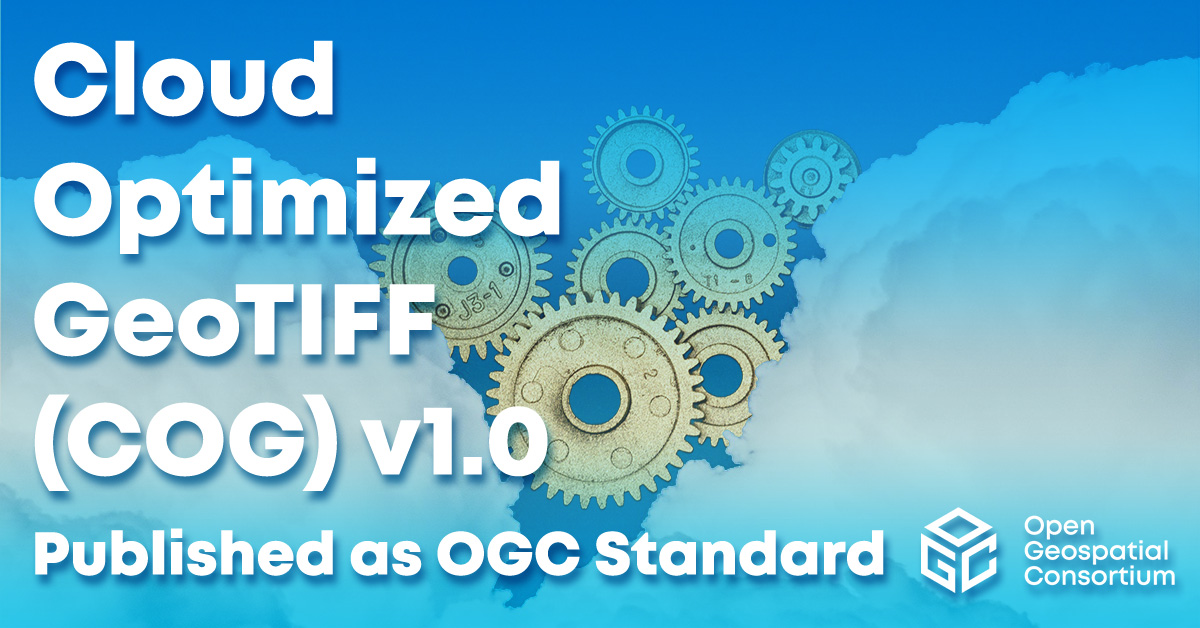The Open Geospatial Consortium (OGC) is excited to announce that the Cloud Optimized GeoTIFF (COG) Standard v1.0 has been approved by the OGC Membership for adoption as an official OGC Standard. COG, as an OGC Standard, formalizes existing practices already implemented by the community, such as the GDAL library or the COG explorer and other implementations.
COG allows for the efficient streaming and partial downloading of imagery and grid coverage data on the web, and enables fast data visualization and geospatial processing workflows. COG-aware applications can efficiently stream/download only the parts of the information they need to visualize or process web-based data. With so much remote sensing imagery available in cloud storage facilities, the benefits of optimizing their visualization and processing will be widespread. COG is one of the preferred formats used in catalogs conforming to the SpatioTemporal Asset Catalog (STAC) specification, and sits alongside other emerging cloud-optimized formats of relevance to OGC, such as Zarr, COPC, and GeoParquet.
The COG Standard specifies how TIFF files can be organized in a way that favors the extraction of convenient parts of the data at the needed resolution while remaining compatible with traditional TIFF readers. It also specifies how to use HTTP (or HTTPS) to transmit only the part of information needed without downloading the complete file.
The OGC COG Standard depends on the TIFF specification and the OGC GeoTIFF Standard. For large files, it depends on the BigTIFF specification. The standard takes advantage of some existing characteristics of the TIFF specification and the existing HTTP Range Request specification (IETF RFC 7233) and does not modify them in any way.
The early work for crafting this OGC Standard was undertaken in the Open-Earth-Monitor Cyberinfrastructure (OEMC) project, which received funding from the European Union’s Horizon Europe research and innovation program under grant agreement number 101059548 and in the All Data 4 Green Deal – An Integrated, FAIR Approach for the Common European Data Space (AD4GD) project, which received funding from the European Union’s Horizon Europe research and innovation program under grant agreement number 101061001.
This work was followed by an activity within OGC’s Testbed-17 that formally specified COG requirements in the OGC Testbed-17: Cloud Optimized GeoTIFF specification Engineering Report. The lessons from the initiatives were then used to inform the standardization of COG by the OGC Membership.
OGC Members interested in staying up to date on the progress of this standard, or contributing to its development, are encouraged to join the GeoTIFF Standards Working Group (SWG) via the OGC Portal. Non-OGC members who would like to know more about participating in this SWG are encouraged to contact the OGC Standards Program.
As with any OGC standard, the open Cloud Optimized GeoTIFF (COG) Standard v1.0 is free to download and implement.
